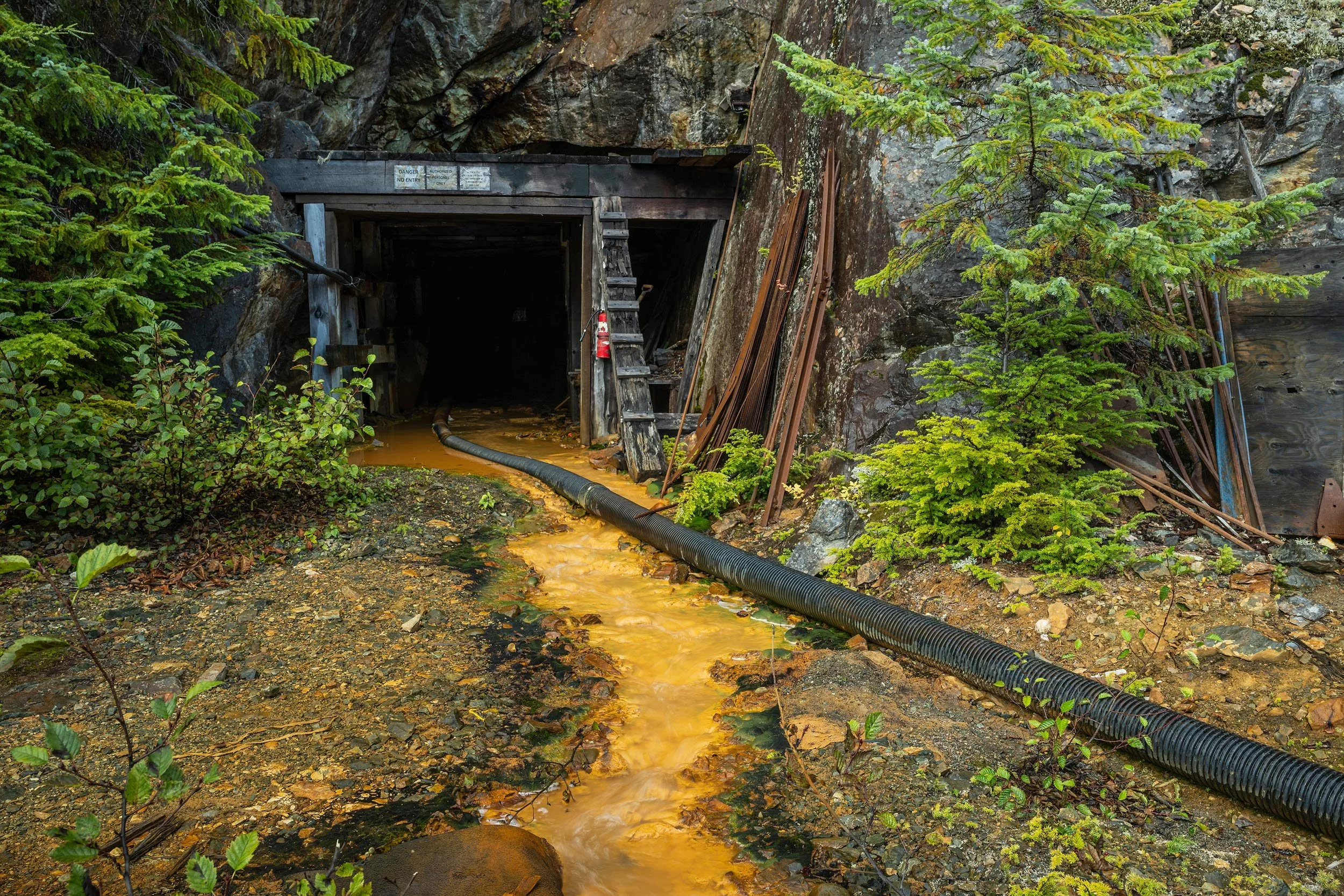
Taku River
Photo by Chris Miller
Status of B.C. Mining Activity in the Taku Watershed
Despite decades of controversy surrounding B.C.’s Tulsequah Chief mine, which has been polluting the Taku watershed with acid mine drainage since 1957, mineral claims staking increased dramatically in the Taku watershed during the pandemic. Several Canadian junior mining companies are looking to develop gold mines throughout the Taku, including just across the river from the Tulsequah Chief mine.
For thousands of years, the Tlingit peoples of the T’aakū Kwáan have lived in and stewarded the 4.5-million acre (3-million hectare) T’aakū Héeni (Taku River) watershed, the largest mostly intact watershed on the Pacific Coast of North America. On the British Columbia side of the border, the watershed is within the traditional and present-day territory of the Taku River Tlingit First Nation. On the Alaska side of the political border, the lower part of the Taku River watershed is part of the traditional and present-day lands of the Douglas Indian Association, a U.S. federally recognized Tribe.
Tulsequah Chief Mine
Abandoned
This abandoned mine has been leaching acid mine waste into the Taku watershed less than 15 miles from the border for 66 years. The two recent owners of this mine went bankrupt. Teck is the historical owner.
Photos by Chris Miller
New Polaris Mine
Proposed re-opening
Canadian junior mining company Canagold plans to reopen this gold mine (closed in 1951), almost within sight of the polluting Tulsequah Chief mine and about 9 miles upstream of the border. The B.C. Environmental Assessment (EA) Office invited Canagold to begin the EA process in March 2023, and a comment period for Canagold’s Initial Project Description closed on June 8, 2023.
Read our official comments on the New Polaris, submitted in June 2023.
Photos by Chris Miller
Thorn Mine Project
Advanced exploration
Owned by Canadian junior mining company Brixton Metals, the Thorn Project is a potential gold-copper mine in the advanced exploration phase along the Sultahine River, a tributary in the Taku watershed. Exploratory drilling activity and development at the Thorn camp and airstrip has increased in recent years, and mining giant BHP recently invested in the project.
Taku River, not a specific mine project
The Taku watershed is just one of the three transboundary rivers that originates in British Columbia, Canada and flows into Southeast Alaska. These transboundary rivers are staked with mines & mining claims that threaten our rivers, salmon and communities.




